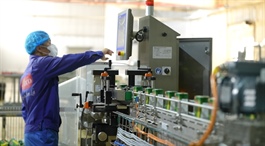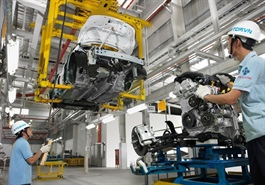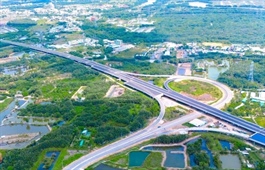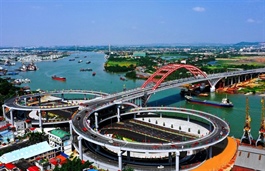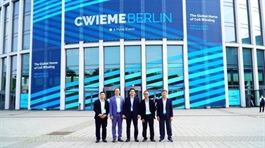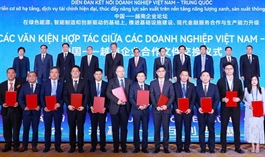BESS solutions build up steam in Vietnam
BESS solutions build up steam in Vietnam
As electricity demand surges and renewable energy integration strains the grid, battery energy storage systems are drawing strong interest from enterprises seeking to secure power stability and reduce curtailment.
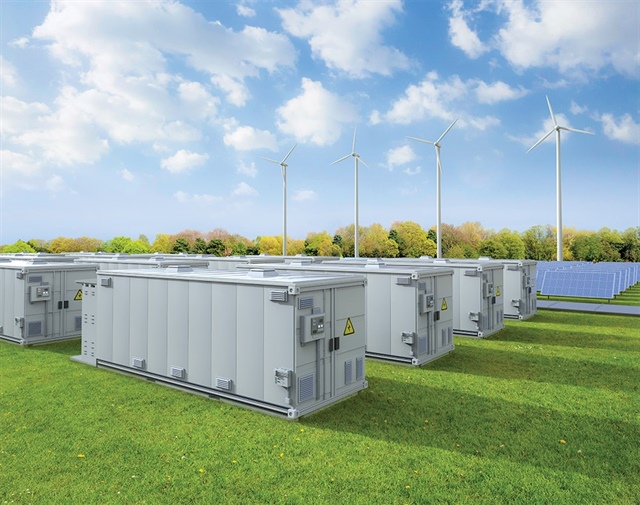
BESS solutions build up steam in Vietnam, Photo: Freepik.com |
Desay Battery of China last week signed an MoU with several prominent Vietnamese enterprises and institutions including Viettel Manufacturing, IPC Construction, Ntech Technology Group, the Institute of Energy Technology at Hanoi University of Science and Technology, and Mai Chau Hydropower, marking a new chapter for the energy storage tech industry in Vietnam.
The agreement aims to foster joint research, localisation of BESS production, and pilot deployment of advanced battery technologies in Vietnam’s renewable energy and smart grid projects. It is expected to pave the way for future investment in manufacturing facilities, workforce training, and technical standard development tailored to local conditions.
The signing ceremony took place alongside the 2025 International Exhibition on Batteries and Energy Storage, which attracted more than 200 foreign enterprises.
“We are very confident about the Vietnam market as it is witnessing a significant surge in renewable energy projects, particularly solar and wind power,” said Felix Hu, deputy director of Global Markets at Desay Battery.
Meanwhile, Ha Minh Hiep, chairman of the National Directorate for Standards, Metrology and Quality (STAMEQ), told a workshop held last week in Hanoi on the topic about the importance of developing domestic BESS production capabilities to reduce import costs and strengthen supply chains.
“Vietnam is implementing its commitment to a just energy transition and achieving net-zero emissions by 2050,” Hiep said. “In this process, energy storage systems are not only a technological solution but also an essential component to ensure power system stability, optimise renewable energy sources, and enhance backup capacity in increasingly unpredictable climate conditions. To deploy BESS safely, effectively, and at scale, a suitable system of standards, technical regulations, and management mechanisms is required.”
This sentiment was echoed by Anna Gibson, climate counsellor at the UK Foreign, Commonwealth and Development Office. She emphasised that clear regulatory standards can unlock financing, ensure safety, and boost investor confidence in BESS projects.
“Developing standards for energy storage systems is crucial to ensure safety and reliability, promote technical consistency and quality assurance, align with international practices, support financial mobilisation, and build investor confidence, while also enabling effective integration into the power grid,” said Gibson.
Meanwhile, Luu Manh Tien, who is CEO of Solar Electric Vietnam, remarked that although Vietnam’s renewable energy increased sharply recently, it still faces persistent challenges such as output curtailment and uneven installation quality.
“The market is clearly moving towards self-consumption and energy storage models due to their distinct advantages in easing grid pressure and ensuring stable, reliable power – especially for industrial users,” he added.
As Vietnam charts its path towards net-zero emissions by 2050, BESS is emerging as a vital investment priority.
“While the pace of renewable energy deployment in Vietnam has been remarkable, integrating such variable power sources into the national grid has presented technical and regulatory challenges, particularly in the absence of supportive policies for energy storage,” said Vo Le Duy Duc, key accounts director at VinEnergo, established through Vingroup.
“The domestic development of BESS could help reduce import costs, enhance technological self-sufficiency, and promote the local supply chain,” he added.
Patrick Haverman, Deputy Resident representative of the United Nations Development Programme in Vietnam in Vietnam, said the programme is honoured to partner with the Ministry of Science and Technology, STAMEQ, and other partners under the Just Energy Transition Partnership framework to develop national standards as an essential foundation to drive investment and build market confidence.
“Removing technical barriers and creating an enabling environment will be key to enhancing energy storage capacity in line with the objectives of Vietnam’s power development plans,” he said.
|
Dr. Du Van Toan, renewable energy expert Ministry of Agriculture and Environment BESS enable the storage of surplus electricity during off-peak hours for release during peak demand, helping to stabilise the grid and optimise the utilisation of renewable energy sources such as wind and solar power. China and the United States lead the market, accounting for roughly 75 per cent of new installations. At the same time, battery storage costs have plummeted by nearly 90 per cent over the past decade. Lithium-ion batteries now dominate over 90 per cent of the market share, with costs falling from more than $800/kWh to under $140/kWh, an essential factor driving the integration of BESS into energy systems worldwide. In some countries, such as India, integrating BESS into renewable energy projects has even become mandatory. New developers are required to install storage systems equivalent to 10 per cent of the project’s capacity. This policy supports India’s goal of reaching 500GW of renewable energy by 2030 while enhancing energy reliability and reducing stress on the grid. Vietnam currently has over 16.5GW of solar power including rooftop systems accounting for approximately 20.5 per cent of the country’s total installed capacity, alongside more than 5.1GW of wind power, or 6.4 per cent. While the rapid expansion of renewable power between 2017 and 2021 brought notable achievements, it also posed significant operational challenges due to the intermittent nature of green energy, its weather dependence, and low system inertia. Against this backdrop, BESS is expected to play a key role in balancing loads, easing transmission congestion, and optimising renewable energy use. Vietnam’s Power Development Plan VIII sets a target of developing 300MW of battery storage capacity by 2030. However, the current legal framework for BESS remains largely undefined. To support the development of BESS in Vietnam, it should have a comprehensive and detailed planning approach covering grid infrastructure, land use, telecommunications, and financial mechanisms. Incentives such as tax relief and green credit schemes will be essential to mobilise private investment. Only then can BESS fulfil its potential in storing electricity and helping Vietnam’s power sector adapt effectively to the net-zero target by 2050. |
- 09:47 02/07/2025



